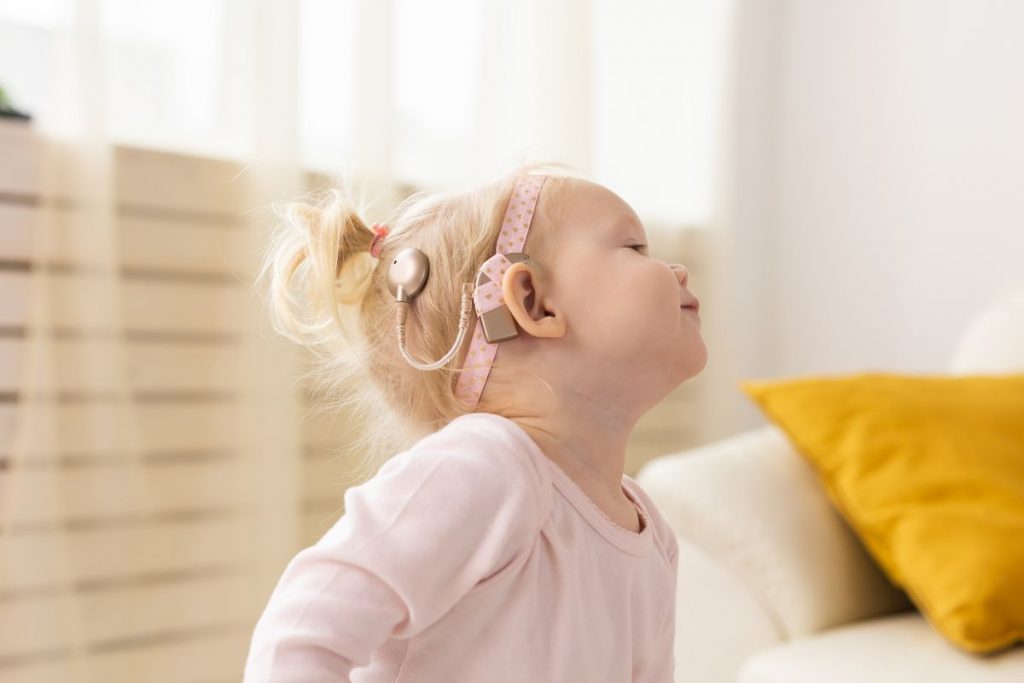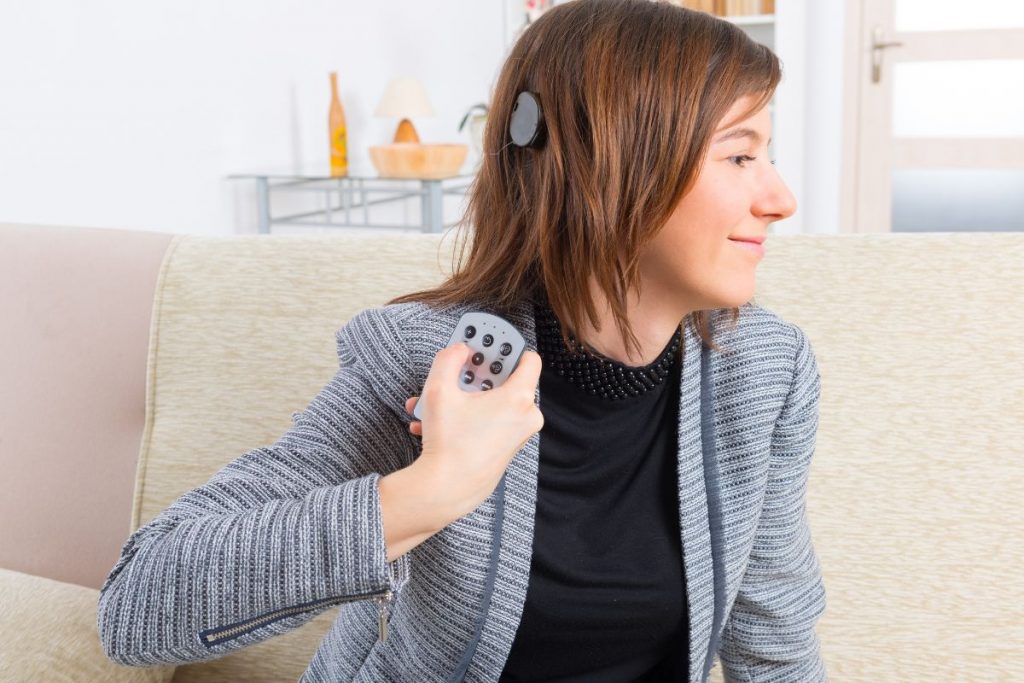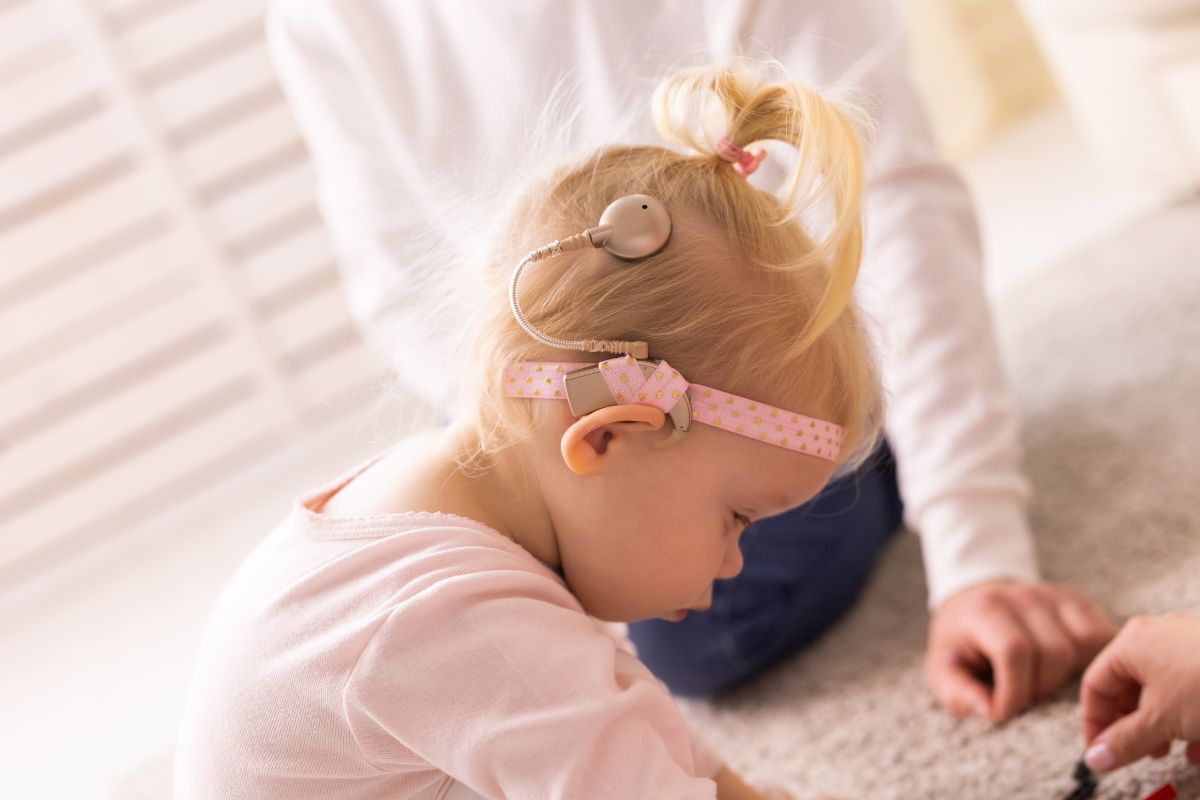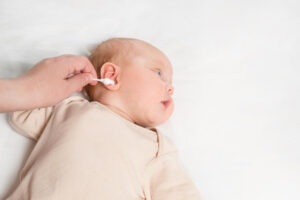Introduction to The Impact of Cochlear Implants on Mental Wellness

In the discourse presented here, Dr. Shree Rao provides insights into The Impact of Cochlear Implants on Mental Wellness. She is the Best Doctor for Cochlear Implants.
In the realm of auditory restoration, the profound impact of cochlear implants extends beyond the realm of hearing; it intricately weaves into the fabric of mental wellness. Under the expert guidance of professionals like Dr. Shree Rao, the transformative journey of cochlear implantation unfolds, not just as a technological intervention but as a catalyst for emotional well-being. This comprehensive exploration delves into the nuanced connections between cochlear implants and mental wellness, unveiling the far-reaching positive effects on individuals’ lives. Dr. Rao’s expertise serves as a beacon, guiding individuals towards a future where enhanced hearing harmonizes with improved mental and emotional vitality.
Psychological Adjustment Post-Implantation
Following cochlear implantation, individuals commonly undergo distinct emotional phases. From initial excitement and anticipation to potential periods of adjustment and adaptation, understanding these emotional trajectories is crucial in comprehending the psychological landscape post-implantation.
The psychological adjustment post-implantation is inherently tied to the transformative shift from a world of silence to one infused with sound. Navigating this sensory metamorphosis requires not only physical adaptation but also psychological assimilation, as individuals reconcile their newfound auditory experiences with their previous auditory memories.
The restoration of hearing through cochlear implants often prompts a reevaluation of self-identity. Individuals may experience shifts in self-esteem and confidence as they redefine their place in social, professional, and personal spheres. Exploring these psychological facets unveils the intricate interplay between hearing restoration and self-perception.
The post-implantation phase significantly influences social interactions, which, in turn, shape emotional well-being. Examining how individuals navigate conversations, build connections, and establish relationships post-cochlear implantation offers valuable insights into the psychological adjustments necessary for fostering positive mental health outcomes.
Coping with the challenges associated with cochlear implantation demands psychological resilience. Uncovering the various coping mechanisms individuals employ post-implantation provides a deeper understanding of the intricate balance between emotional challenges and the capacity for resilience.
The psychological adjustment post-implantation is not an isolated journey but one deeply intertwined with family dynamics. Exploring the impact on familial relationships and the role of psychological support mechanisms within the family unit illuminates the broader context of mental wellness in the post-implantation phase.
Enhanced Social Connection and Mental Health
Rekindling Social Bonds:
Cochlear implants act as a bridge to rekindling and fortifying social bonds that may have been strained or diminished due to hearing loss. As individuals regain the ability to actively participate in conversations, the restoration of social connections becomes a catalyst for improved mental well-being.
Reducing Social Isolation:
One of the hallmark benefits of cochlear implants is their role in mitigating social isolation. Individuals who previously withdrew from social engagements due to communication difficulties find a renewed sense of belonging and connection, positively impacting their mental health.
Improving Communication Confidence:
Enhanced social connections post-cochlear implantation contribute to an individual’s communication confidence. As communication barriers diminish, individuals feel more assured and empowered in social settings, fostering a positive self-perception and psychological well-being.
Social Engagement in Professional Settings:
Beyond personal relationships, the impact extends to professional settings. Cochlear implants empower individuals to actively engage in workplace conversations, meetings, and collaborative efforts. This heightened professional engagement not only boosts confidence but also positively influences mental health in the context of career satisfaction and accomplishment.
Family Dynamics and Emotional Well-Being:
The enhanced social connection facilitated by cochlear implants extends to family dynamics. Improved communication within the family unit contributes to a more harmonious domestic environment, positively influencing emotional well-being for both the implant recipient and their loved ones.
Community Integration and Mental Resilience:
The broader impact of cochlear implants on community integration plays a pivotal role in shaping mental resilience. Actively participating in community events, gatherings, and social activities fosters a sense of connection and belonging, contributing to a more robust mental well-being.
Psychological Impact of Social Support Networks:
The establishment and strengthening of social support networks post-implantation contribute significantly to an individual’s mental health. Examining the psychological impact of supportive social networks sheds light on the intricate relationship between social connections and overall mental wellness.
Impact on Emotional Health in Different Age Groups

Children – Fostering Emotional Resilience:
In the pediatric population, cochlear implants play a pivotal role in fostering emotional resilience. The ability to engage fully in the auditory world from a young age empowers children to develop robust emotional coping mechanisms. As they navigate the challenges of social interaction and education, cochlear implants contribute to a positive emotional foundation, promoting a sense of belonging and self-confidence.
Adults – Improving Self-Esteem and Social Confidence:
For adults navigating the journey of hearing restoration, cochlear implants often lead to improvements in self-esteem and social confidence. The emotional impact is particularly pronounced in social settings, where enhanced communication skills contribute to a more positive self-perception. Improved emotional health in adults is intricately linked to a newfound ability to actively participate in conversations, fostering a sense of connection and reducing social anxiety.
The Elderly – Alleviating Emotional Impact of Isolation:
In the elderly population, cochlear implants contribute to alleviating the emotional impact of isolation often associated with hearing loss. By facilitating clearer communication and enhanced social engagement, these implants play a crucial role in reducing feelings of loneliness and fostering emotional well-being. The ability to actively participate in family interactions and community events contributes to a more positive outlook on life for the elderly implant recipients.
Impact on Parental Emotional Well-Being:
The emotional well-being of parents with children who undergo cochlear implantation is a noteworthy aspect. Witnessing their child’s journey to hearing restoration can evoke a range of emotions, from initial concerns to the joy of seeing improved communication and social skills. Understanding the emotional impact on parents provides valuable insights into the broader familial dynamics influenced by cochlear implants.
Psychological Adjustment Across Age Groups:
Examining the psychological adjustment across different age groups post-cochlear implantation reveals common threads and unique nuances. From the emotional resilience cultivated in children to the improved self-esteem in adults and the alleviation of isolation in the elderly, cochlear implants contribute to a positive psychological adjustment that transcends age barriers.
Challenges and Coping Strategies
Adjustment Period and Expectations:
The initial adjustment period post-cochlear implantation can be challenging, often accompanied by a spectrum of emotions. Individuals may grapple with setting realistic expectations regarding the pace of improvement in speech perception and overall auditory experience. Managing these expectations is crucial for navigating this transitional phase effectively.
Social Stigma and Self-Perception:
Despite the advancements in societal awareness, individuals with cochlear implants may still encounter social stigma or misconceptions. This can affect self-perception and contribute to feelings of self-consciousness. Addressing societal perceptions and building resilience against potential stigma are key aspects of coping with this challenge.
Technological Adaptation and Maintenance:
Embracing the technological aspects of cochlear implants, including device maintenance and programming adjustments, can be a challenge. Learning to navigate and utilize the functionalities of the implant requires time and patience. Educational support and ongoing training play a crucial role in overcoming this challenge.
Communication Difficulties in Varied Environments:
Cochlear implants significantly improve communication, but individuals may still face challenges in diverse auditory environments. Background noise, reverberation, and varying acoustic conditions can pose difficulties. Developing effective coping strategies for these situations is essential for maintaining confidence and mental well-being.
Comprehensive Rehabilitation Programs:
Engaging in comprehensive rehabilitation programs that encompass auditory training, speech therapy, and psychological support is instrumental in overcoming challenges. These programs provide individuals with the tools and strategies needed to navigate various aspects of life post-cochlear implantation.
Peer Support and Community Engagement:
Establishing connections with peers who have undergone similar experiences fosters a sense of community and mutual support. Peer interactions provide valuable insights, shared coping strategies, and emotional encouragement, contributing to a more resilient mindset.
Educational Initiatives and Awareness Campaigns:
Educating the broader community about cochlear implants through awareness campaigns helps dispel myths and reduce social stigma. Increased understanding fosters a supportive environment, positively impacting self-perception and mental well-being.
Regular Follow-ups and Counseling:
Regular follow-ups with healthcare professionals and counseling sessions play a crucial role in addressing challenges and fostering mental wellness. Ongoing support ensures that individuals receive personalized guidance, helping them navigate both the triumphs and tribulations of the cochlear implant journey.
Adaptive Coping Mechanisms for Communication:
Developing adaptive coping mechanisms for communication challenges involves honing skills for different environments. Techniques such as lip reading, utilizing visual cues, and employing assistive technologies can enhance communication effectiveness in diverse settings.
Conclusion
In conclusion, cochlear implants, under the guidance of experts like Dr. Shree Rao, significantly improve both hearing and mental well-being. This transformative journey not only restores auditory capabilities but also enhances emotional vitality. The positive impacts extend across various aspects of life, highlighting the crucial link between hearing health and mental wellness. With Dr. Rao’s expertise, individuals with cochlear implants can look forward to a brighter and more enriched life.

Why consult EarSurgeon, Dr. Shree Rao?
Dr. Shree Cuddapah Rao is acclaimed as one of the best pediatric ENT specialists in Hyderabad. With 10+ years of deep domain experience in the field of ENT, she is the director at Dr. Rao’s ENT Super Specialty Hospital. She underwent specialized training in Rhinoplasty / Facial Plastic surgery at Singapore General Hospital, Singapore. She also underwent advanced training in cochlear implant surgery under Padmashri Dr. Milind V Kirtane and had a Fellowship in a cochlear implant. Having performed over 200 successful cochlear implants for patients worldwide, Dr. Shree Cuddapah Rao is also the recipient of several prestigious accolades in the domain of ENT. Dr. Shree Rao is one of the best ent doctor in hyderabad, to book an appointment click here.
Are you looking for
then you have landed at right place!







